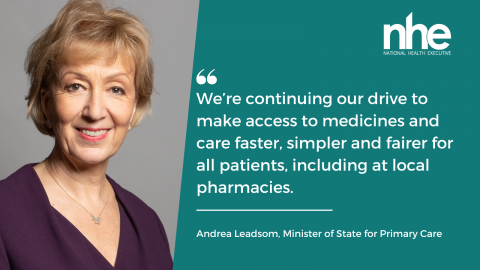New legislation in primary care is set to give pharmacy staff more time with patients while also making medicine dispensing more efficient, the government has said.
The changes will enable smaller, independent pharmacies to take advantage of the so-called ‘hub and spoke’ model, specifically ensuring that pharmacies belonging to different legal entities can use hubs belonging to other companies.
Dispensing medicines involves a number of processes, including:
- Receipt of a prescription
- Clinical and accuracy checks
- Sourcing of the products
- Preparation
- Assembly and supply of medicines
- Advising the patient to ensure they know how and when to take the medicine

Traditionally, these elements are done in the same place, but the idea of the hub and spoke model is for those routine parts of practice to be done on a large scale at a pharmacy known as the hub – separate to the pharmacy where the prescription was handed in, which is the spoke.
Hubs can also make use of automated processes to improve efficiencies and thus free up time for more patient-facing activities.
Legal restrictions on dispensing medicines for pharmacies under different ownership have prevented smaller pharmacies from adopting this model, while also incurring extra costs and workload.
Support for this course of action was evident from a 2022 consultation and, subject to parliamentary approval, all pharmacies will have an option of two hub and spoke models from 2025. The move was a commitment made under the primary care recovery plan.
The government’s primary care minister, Andrea Leadsom, said: “These proposals will level the playing field and enable our hard-working community pharmacies to benefit from centralised dispensing.
“It will also free up highly skilled pharmacists from back-office duties to deliver patient-facing services, including Pharmacy First and contraception consultations, supply medicines and provide advice.”
Image credit: iStock



















